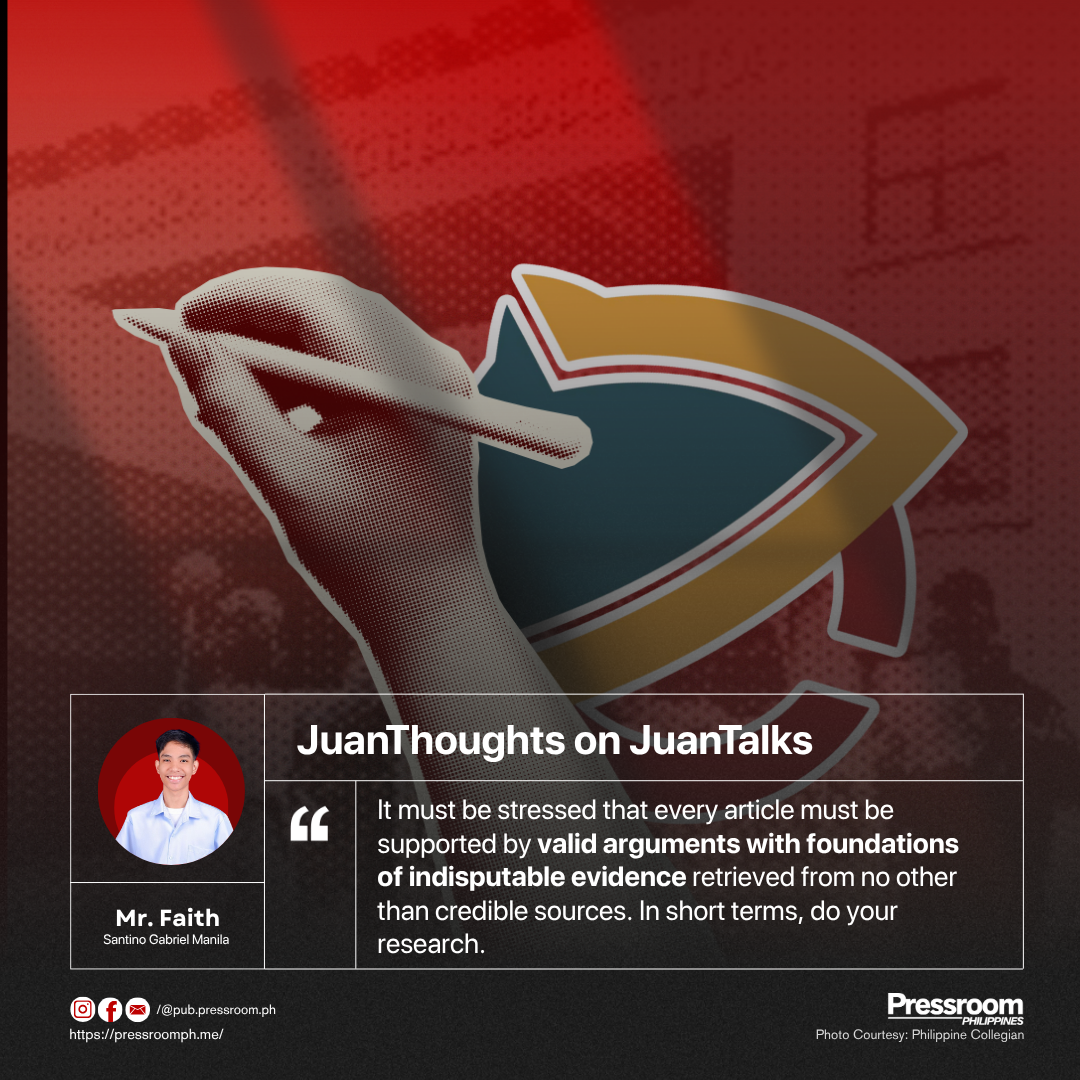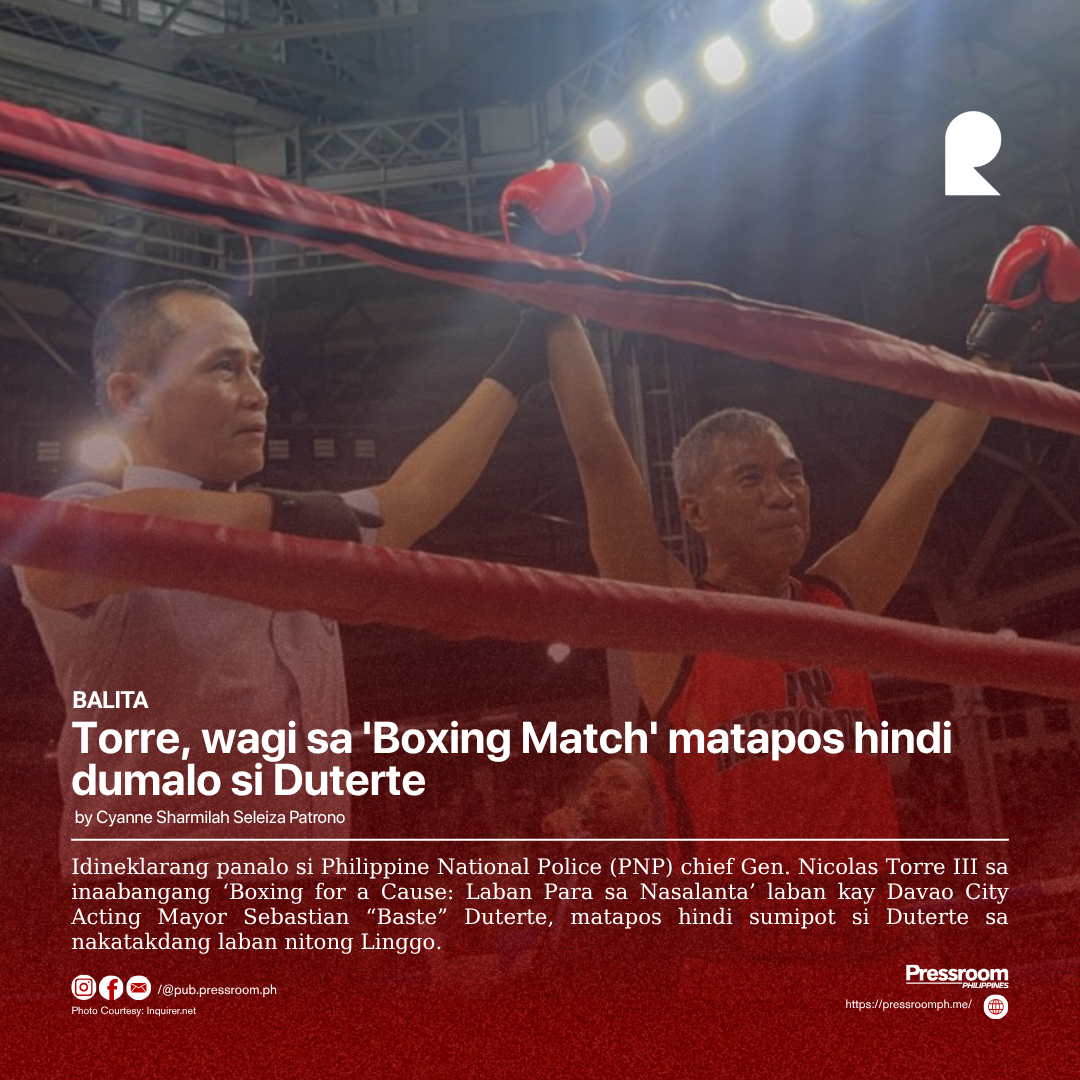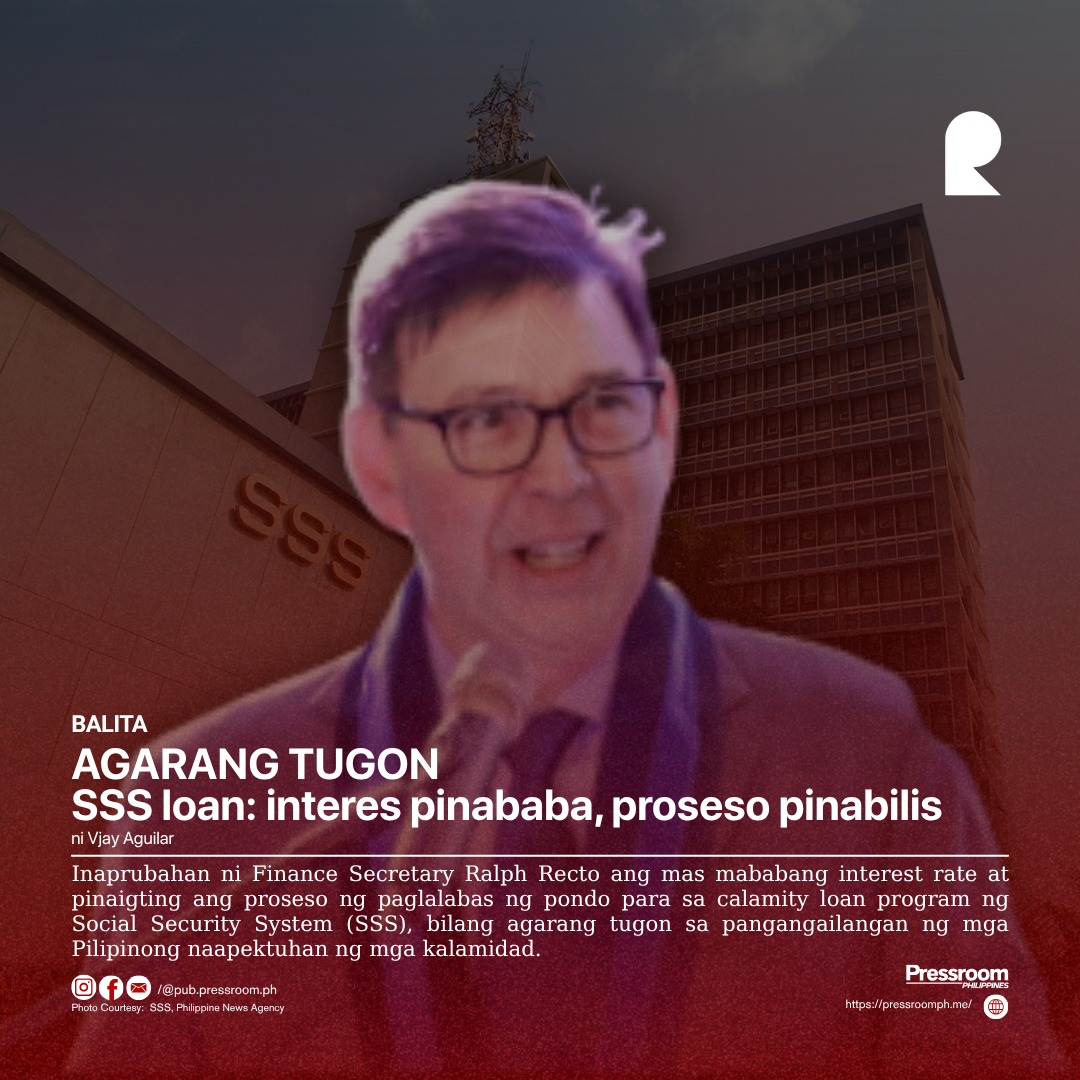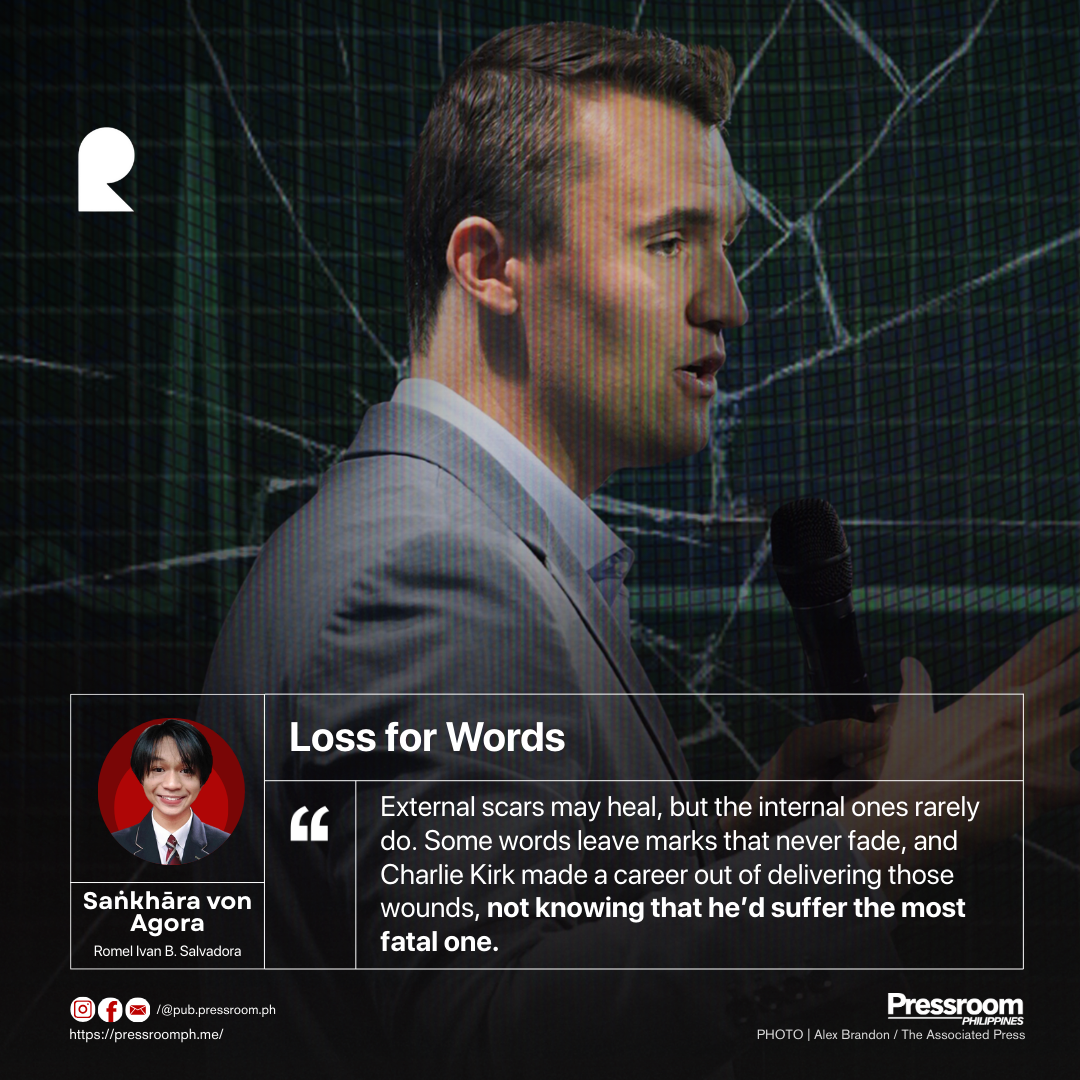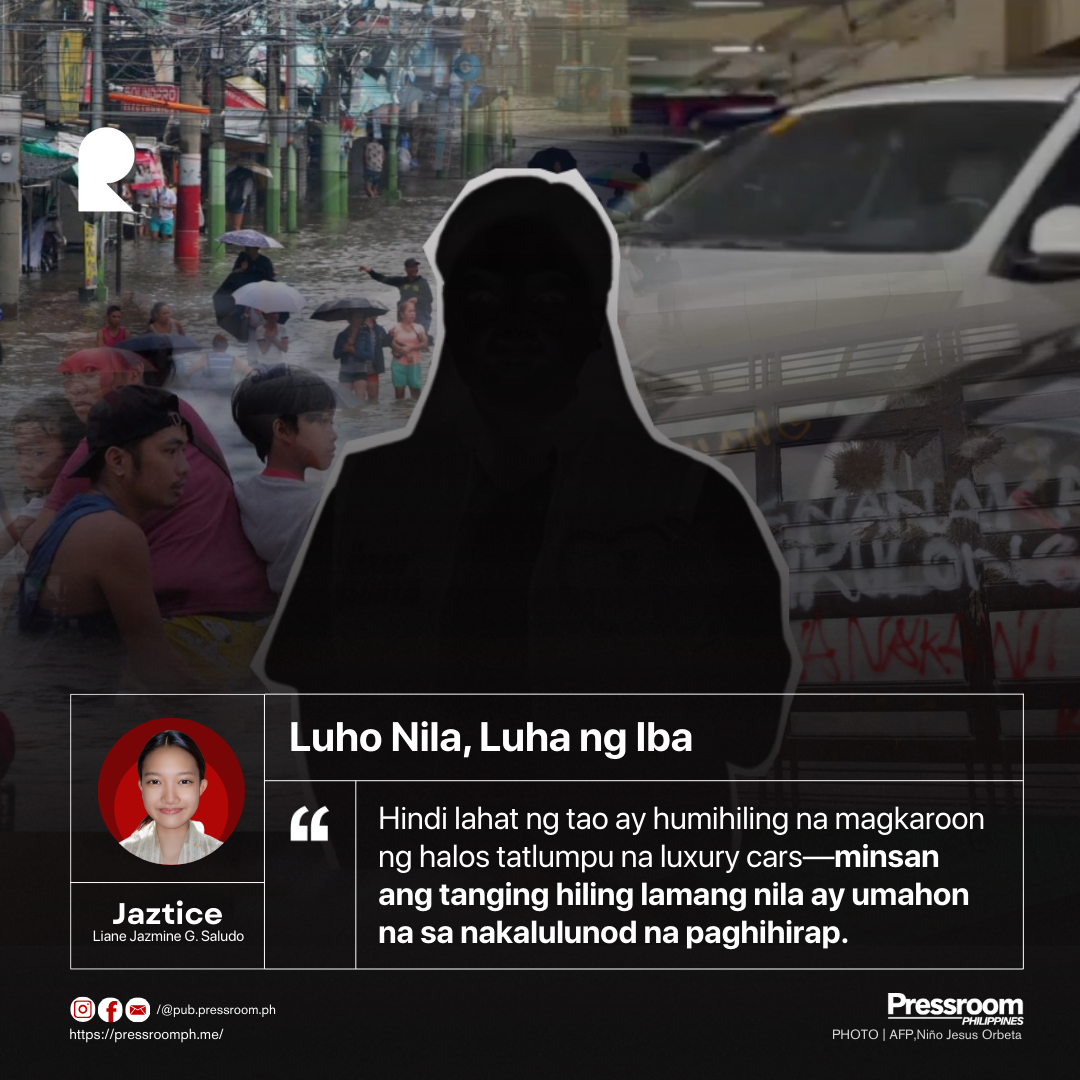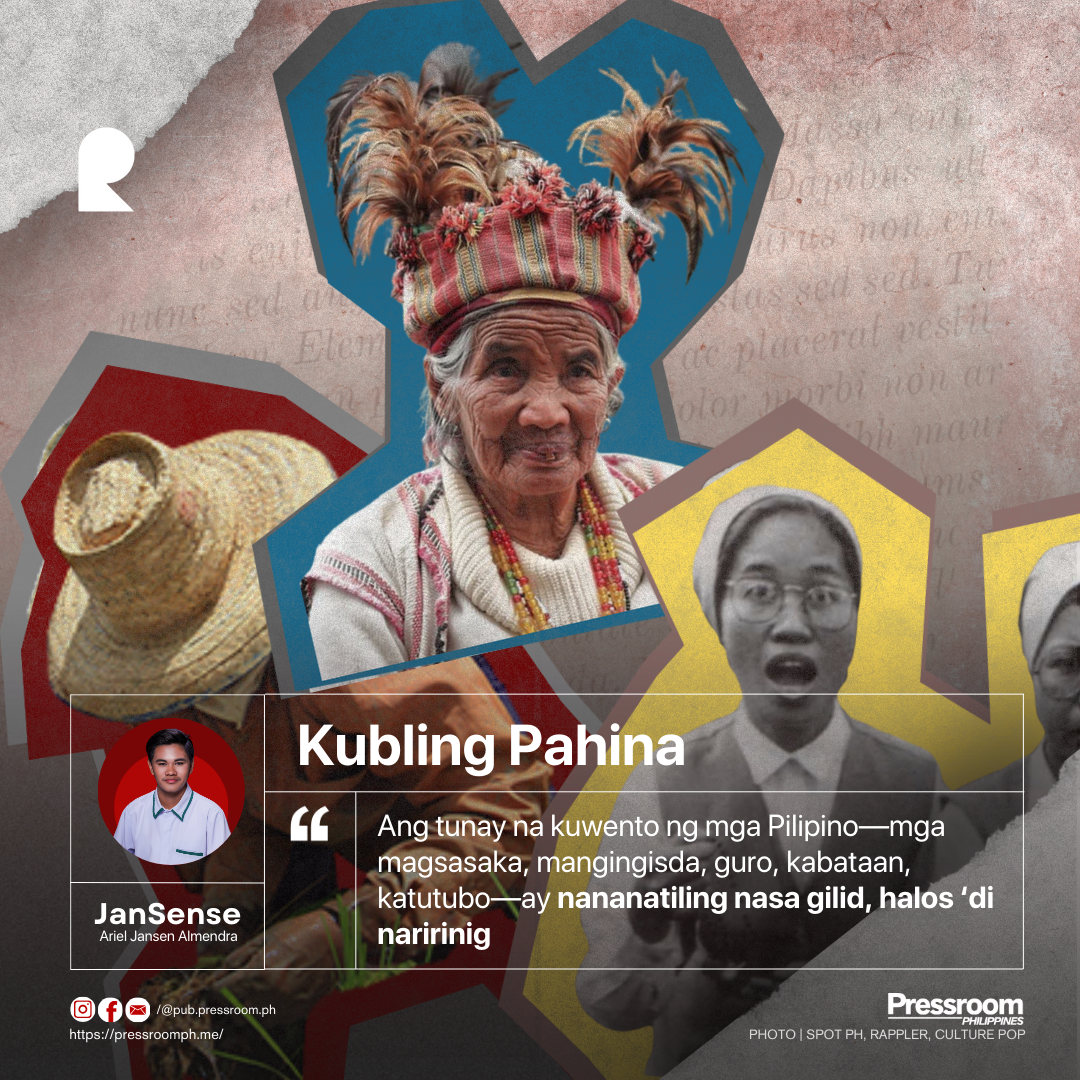I never really realized the weight of true journalism until the JuanClick alliance for national youth-led online publications held their first JuanTalks focus group discussion held on July 25 in practicing their privilege during the National Campus Press Freedom Day. The memory was fresh; being eager to enter the seminar with the prospect of becoming a better writer and leaving with more than I could have ever conceived. It was baffling to me how the youth actually organized this, and I want to share the lessons that completely changed how I perceive journalism.
JuanClick is an alliance of national youth-led online publications launched by the ever-eminent Explained PH. Calling all organizations who share the same purpose and interest like Astra, Danggit PH, and even our mother publication, Pressroom Philippines, JuanClick was not only timely, but ambitious. I believe from the moment it was created, it had already set out to present its stand in the modern age through the National Campus Press Freedom Day, held every July 25 as per Republic Act No. 11440 or “An Act Recognizing the Observance of July 25 of Every Year as the National Campus Press”.
JuanTalks was that very project. Sticking to the brand, JuanTalks convened the united organizations, seeking to empower youth journalists alike. The atmosphere felt incredibly fitting: made by youth journalists, for youth journalists. It was the second session where I felt like sitting at the end of my seat and what follows is the fruitful insights I have gathered during what I see as a privilege to participate in.
Journalism requires immense passion. Seeing how experienced and genuine the speakers’ responses were absolutely showed insights with deep-seated love for journalism. They emphasized that this field is underscored by the willingness to serve and not be served. Many seize the opportunity not for growth nor impact but for reputation.
For countless moments, it was highlighted that journalism is only for those who are capable of sacrificing themselves for credible information that posit impactful changes to society. Like any other career, journalism needs that spirit of sincerity in you, and even if you do not plan to take journalism as your career path, the fact that it is built over a community with strong values which only the strong willed can endure still stands, so the next time you continue to pursue this field, ask yourself what Roxxie Tabile, Pressroom Philippines Literary Editor, inquires her colleagues: “...do you really do this as a contest journalist or a passionate journalist?”
In relation to this sense of care, one must also take comprehensive action to proper information dispersion, no steps skipped. Roxxie Tabile, states “We remain objective—yung parang sa research lang tayo.” It must be stressed that every article must be supported by valid arguments with foundations of indisputable evidence retrieved from no other than credible sources. In short terms, do your research. It does not matter if it is an opinion article or a movie review or any other category; there must always be a level of credibility. In the words of Jandrei Alejo, Informed Philippines Circulation Manager, “Ang isang argument na walang evidence ay isa lamang tsismis.”
But as much as it is a prompt and responsive literature, journalism is fostered with courage. As Luis Bito-on, Agos Chief Layout Artist, noted: “In journalism, it's not just no longer about reporting facts; it's about the courage, integrity, resilience, and also the threats faced by us journalists.” It is a cornerstone in the writing field and many of the topics on JuanTalks revolve around such a notion. The writers’ well-being is fundamental to the foundations we have built journalism on. Even for the most seasoned journalists like the esteemed speakers of JuanTalks, a large margin of their organizational management involved hands-on consideration of the members’ needs and suggestions.
However, courageousness does not only depend on external forces; nine times out of ten, it is actually determined more by the intrinsic. The discussion highlighted how all journalists have a sense of leadership and initiative. It is the capability of being aware of the multitude of journalistic opportunities that surround us. Courage plays a crucial part in writing to the world because, as Jandrei Alejo puts it, “...courage is not about the absence of fear; it's about the presence of facts.”
This is also a symbiotic relationship. Conditioning self-esteem shapes a journalist to be punctual with the validity of their articles, and this sense of credibility allows you to minimize the risks that could damage the very thing that you conditioned yourself on. Just like Elisha Barrion, Danggit PH Associate Editor, who, in her six years of campus journalism experience have only proceeded to the higher levels of press conferences a handful of times, we must be open to the realistic thought that journalism occurs even outside the campus and there are far more surreal stories to tell out there.
Journalism is complex—who would have thought? I really have only thought of it as a brain buster for your literacy skills. Most of the young journalists today began by participating in school press conferences and, like me, sought only the academic benefits. There is no shame in that, and I will continue to strive for skill development in journalism, but if there is one thing JuanTalk has left me with is that I have entered a field of great responsibility that seeks everyday attention and, most importantly, love.
